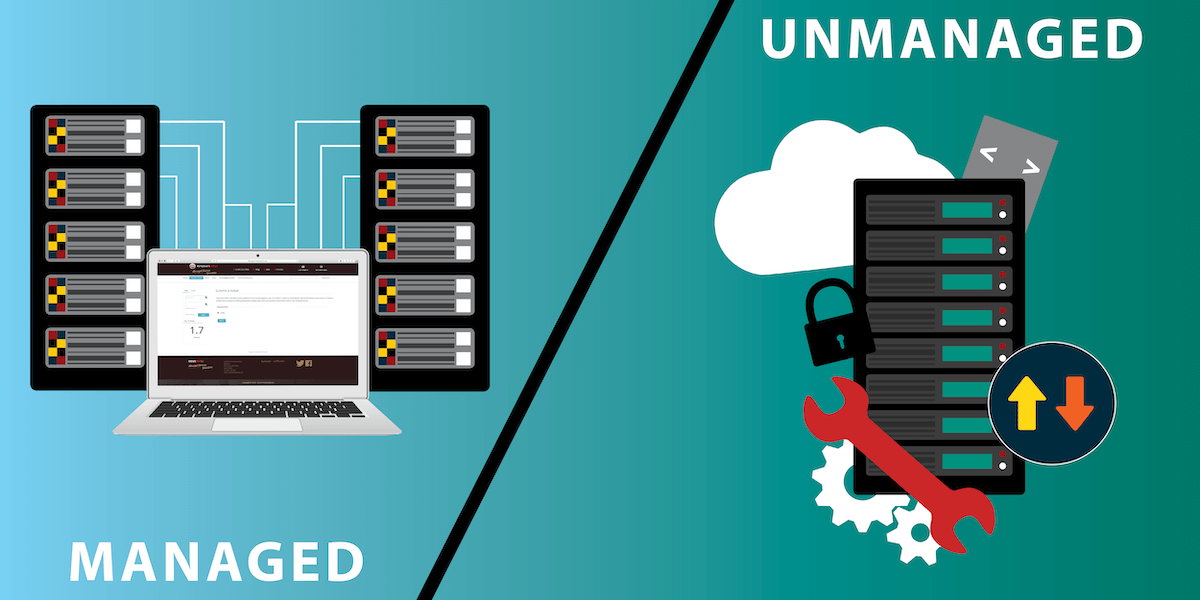When it comes to hosting your website or application, one of the crucial decisions you need to make is whether to opt for managed or unmanaged hosting services. Each option comes with its own set of advantages and considerations, catering to different needs and preferences. Here we will cover the distinctions between managed and unmanaged hosting, helping you make an informed decision for your online presence.
Understanding Managed Hosting
Managed hosting is a service where your hosting provider takes care of all the technical aspects of server management. This includes regular maintenance, updates, security protocols, and troubleshooting. With managed hosting, you can focus on your website’s content and functionality, leaving the intricate details of server management to the experts.
Pros of Managed Hosting
- Custom Server Location: One of the key benefits of using managed hosting is that you can pick the data center of your choice. For example, if your target audience is in Australia, you can easily pick a Cloud server in Australia.
- Ease of Use: Managed hosting is user-friendly, making it an ideal choice for those who are not well-versed in server management. The hosting provider takes care of the technicalities, allowing you to concentrate on your core business.
- Improved Security: Managed hosting providers often implement robust security measures, including firewalls, malware detection, and regular security audits, reducing the risk of cyber threats.
- Automatic Updates: Your hosting provider ensures that your server and software are up to date, minimizing vulnerabilities and ensuring optimal performance.
- 24/7 Support: Managed hosting typically includes round-the-clock customer support, providing assistance whenever you encounter issues or have questions.
Unmanaged Hosting Explained
Unmanaged hosting, on the other hand, puts the responsibility of server management squarely on the client’s shoulders. While this option demands a higher level of technical expertise, it offers greater flexibility and control over the server environment.
Pros of Unmanaged Hosting
- Customization: With unmanaged hosting, you have full control over server configurations, allowing you to customize the environment based on your specific needs.
- Cost Savings: Unmanaged hosting is often more cost-effective, making it an attractive option for businesses or individuals with the technical proficiency to handle server management independently.
- Scalability: Unmanaged hosting provides the flexibility to scale resources up or down as needed without relying on a hosting provider, enabling better control over your hosting budget.
- Learning Opportunities: Managing your own server can be a valuable learning experience, especially for individuals or businesses looking to enhance their technical skills.
Making the Choice:
- Factors to Consider: Technical Proficiency: Assess your team’s technical expertise. If you lack the necessary skills for server management, managed hosting might be the better choice.
- Budget Constraints: Evaluate your budget constraints. Unmanaged hosting is cost-effective, but it requires a significant investment in time and expertise.
- Resource Scalability: Consider the scalability requirements of your website or application. Unmanaged hosting provides more flexibility in scaling resources.
- Security Concerns: If security is a top priority and you prefer a hands-off approach, managed hosting might be the safer option.
Final Verdict
Choosing between managed and unmanaged hosting ultimately depends on your specific needs, technical capabilities, and budget constraints. While managed hosting offers convenience and security, unmanaged hosting provides unparalleled customization and cost savings. Carefully assess your requirements, and with the right choice, your online presence can thrive in a hosting environment tailored to your unique specifications.


